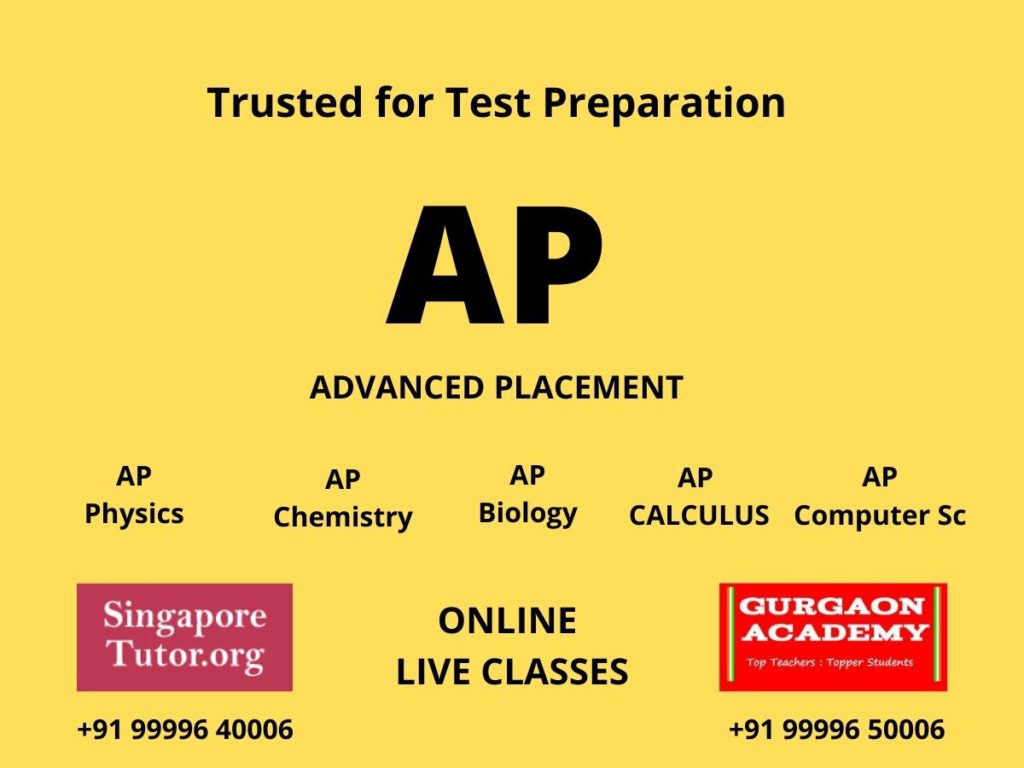AP Physics
What AP Physics Classes Are Offered?
The AP Program used to offer three physics classes: AP Physics B, AP Physics C: Mechanics and AP Physics C: Electricity and Magnetism.
However, the AP program recently replaced AP Physics B, a one-year course, with two one-year courses: AP Physics 1 and AP Physics 2. These are both algebra-based physics courses, which means they don’t require a math background beyond Algebra II.
The AP program still offers AP Physics C, which is broken into two courses and exams: Physics C: Mechanics and Physics C: Electricity and Magnetism. Many schools teach these as the same class, or just teach one topic. Both of these courses are calculus-based.
This means that there are now four AP Physics exams:
- AP Physics 1
- AP Physics 2
- AP Physics C: Electricity and Magnetism
- AP Physics C: Mechanics
The fact that there are now four AP Physics exams can be confusing. So do you take Physics 1, Physics 2, and Physics C in order? What’s new about Physics 1 and Physics 2? We will introduce you to all of the courses and help you decide which class is right for you.
AP Physics 1
AP Physics 1 is an algebra-based, introductory, college-level physics course. It explores Newtonian mechanics (including rotational motion), work, energy, power, mechanical waves and sound, and circuits – in other words, fundamental physics concepts.
AP Physics 1 was designed to be a first-year physics course which you can take without prior physics experience. This is the main difference from the old AP Physics B course, which was designed to be a second-year physics class.
The AP program recommends that students have at least taken geometry and are concurrently taking Algebra II while taking this course. If you’re not that far along in math yet, consider taking a different science class until you’re caught up, as math is very important in physics.
AP Physics 2
AP Physics 2 is also an algebra-based, college-level physics course. However, it delves into some more advanced topics than Physics 1.
Physics 2 explores fluid statics and dynamics, thermodynamics with kinetic theory, PV diagrams and probability, electrostatics, electrical circuits with capacitors, magnetic fields, electromagnetism, physical and geometric optics, and quantum, atomic, and nuclear physics.
AP Physics 2 was designed to be a second-year physics course. This means it could come after AP Physics 1 or any first-year physics course. Much of its content is similar to the old AP Physics B course.
You can read the full descriptions of AP Physics 1 and Physics 2 at the Advanced Placement website.
AP Physics C: Mechanics and AP Physics C: Electricity and Magnetism
Both AP Physics C courses are calculus-based, meaning you should have already taken calculus or concurrently be taking calculus while you take either AP Physics C course. This is the main factor that makes Physics C more challenging than Physics 1 and Physics 2.
But what’s the difference between AP Physics C: Mechanics and AP Physics C: Electricity and Magnetism?
Mechanics covers kinematics, Newton’s laws, work, energy, power, linear momentum, circular motion and rotation, oscillations and gravitation. As you can see, these are many of the same concepts explored in Physics 1. However, this course goes into more depth than Physics 1 and uses calculus, making it much more challenging.
Electricity and Magnetism covers electrostatics, conductors, capacitors, dielectrics, electric circuits, magnetic fields, and electromagnetism. Notice there is some overlap with the Physics 2 curriculum, though again, Physics C will be more difficult since it incorporates calculus.
The two topics are sometimes taught as the same course even though there are two different exams, with each topic being taught over one semester. When taught as a single class, Mechanics is usually taught first, and Electricity and Magnetism comes second.
If schools only teach one topic, it tends to be Mechanics, since it builds on material most commonly taught in beginning physics classes (Newton’s laws, work, energy, power, etc).

Each topic is supposed to be equivalent to one semester of college calculus-based physics.Because of this, AP Physics C is highly recommended to be at least a second-year physics course. You can read a full description of Physics C at the AP website.
Which AP Physics Class Should You Take?
Now that you know a little bit about the different AP Physics classes, you’re probably wondering which class you should take. Or, if you want to take more than one, you’re probably wondering the best order to take the classes in. We will present a few possible sequences, but we will also give you some steps to follow up with your school so you can choose the class that’s best for you!
Option 1: Regular/Honors Physics, Then AP Physics 2
If your school doesn’t offer AP Physics 1 or you don’t want the first physics class you take to be an AP class, then one option is to start with a regular or honors physics class, where you learn the basic concepts of physics. Then, you can take AP Physics 2 as your second physics class.
This option is ideal for students whose schools don’t offer multiple AP Physics classes as well as students who don’t have the time or desire to take multiple AP Physics classes. Physics 2 is the best AP Physics class to take after a regular or honors physics class (Physics 1 would pretty much just repeat what you already learned), although AP Physics C is also an option if you’re taking/have already taken calculus.
Option 2: AP Physics 1, Then AP Physics 2
The AP program says taking Physics 1 and 2 provide a solid physics background for future pre-med, geology, and life sciences students. They also say it’s a good option for students attending colleges where they will have to fulfill a science requirement but will not be studying science as their major.
If your school teaches AP Physics 2 but not AP Physics 1, you can just replace AP Physics 1 with whatever introduction to physics course your school offers. Don’t jump straight into AP Physics 2 – it’s meant to be a second-year physics course!
If your school teaches AP Physics 1 but not AP Physics 2, you could take Physics 1 and then take another natural science course (including chemistry and biology), a science elective, or consider taking AP Physics C if your school offers it.
Option 3: AP Physics 1, Then AP Physics C
AP recommends Physics C (along with AP Calculus AB or Calculus BC) for students aiming for engineering or physical science majors in college. However, taking AP Physics 1, Physics 2, and Physics C might be overkill – you would lose time for biology and chemistry. Getting exposure to all three natural sciences is important for a well-rounded, challenging high school career, especially if you’re going into science or engineering. You also want to make sure you can fit in at least one of the AP Calculus classes.

So if you want to take Physics C, start with AP Physics 1 (or a regular physics course), and then take AP Physics C, which will give you a total of two physics classes during high school.
Physics C is intended as at least a second-year course, so don’t jump into it unprepared. Also, make sure you have taken or are taking calculus while you take AP Physics C.
How will our AP Physics tutor help you in your preparation?
- Our AP Physics tutor will help you master the AP Physics topic that you find most challenging
- You will learn the most updated and effective AP Physics exam skills related to the topic
- You will master all the AP Physics exam questions that can show up for the topic
- You will receive a copy of our complete, concise and exam-based AP Physics note
- You will receive a copy of our AP Physics Question bank, including all question types
Are you looking for the best private AP Physics tutors in Singapore for Online Classes?
SingaporeTutor.org helps you to find Online AP Physics tutors in your local area. We are the number one choice in Singapore to search the best Online AP Physics tutors for your needs, ranging from primary through to university level.
Boost your child’s confidence and ability in AP Physics
A home learning programme that adapts to your child in learning AP Physics. We create individual work plans for school students of all level, intelligently tailored to their strengths and weaknesses. Designed to reinforce existing knowledge while gradually introducing new concepts, our tutors are best suited to supplementing school learning at home.
Thousands of learning resources
Packed with exam technique lessons, model answers, progress quizzes and practice exam papers – all for your board examination. We know what it takes to get A* results, and give you the resources to get there.

Optimised learning plan
We create a unique plan based on how long until your exam and how well you know topics of your subject. Whether it’s improving your understanding, practising exam questions or memorising definitions, our tutors calculate the best use of your time.
World class teachers
Our teachers have thousands of hours of teaching experience under their belts. Our teachers work with brilliant minds producing some of the most effective study resources in the world.
Want to Join AP Physics!! Contact Us
Singapore Tutor.org
T : +91 99996 40006 (Whatsapp/Call)
E: Singaporetutor1@gmail.com


